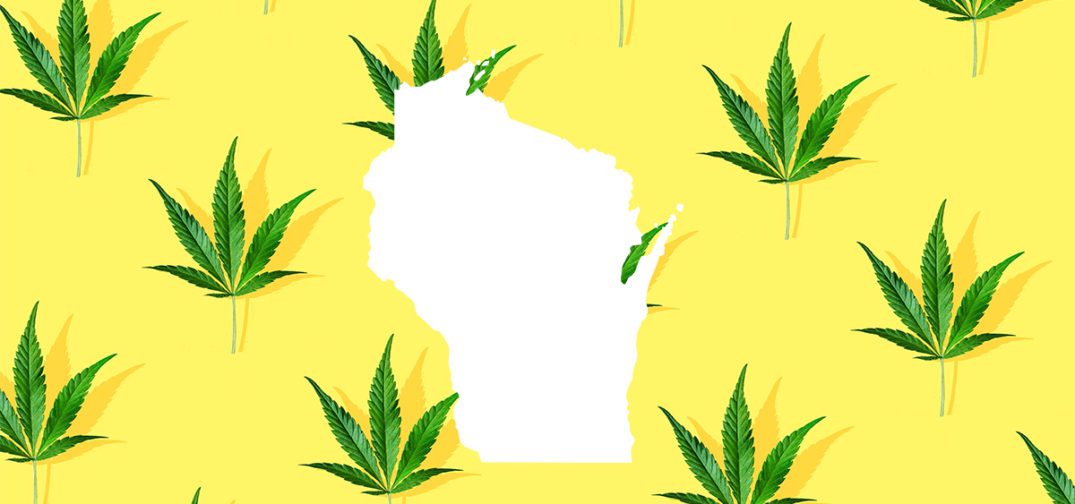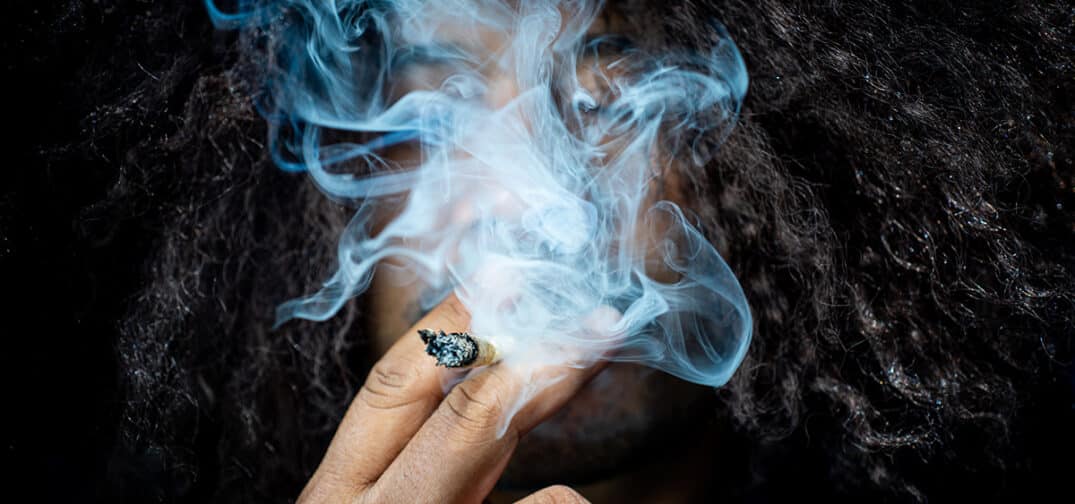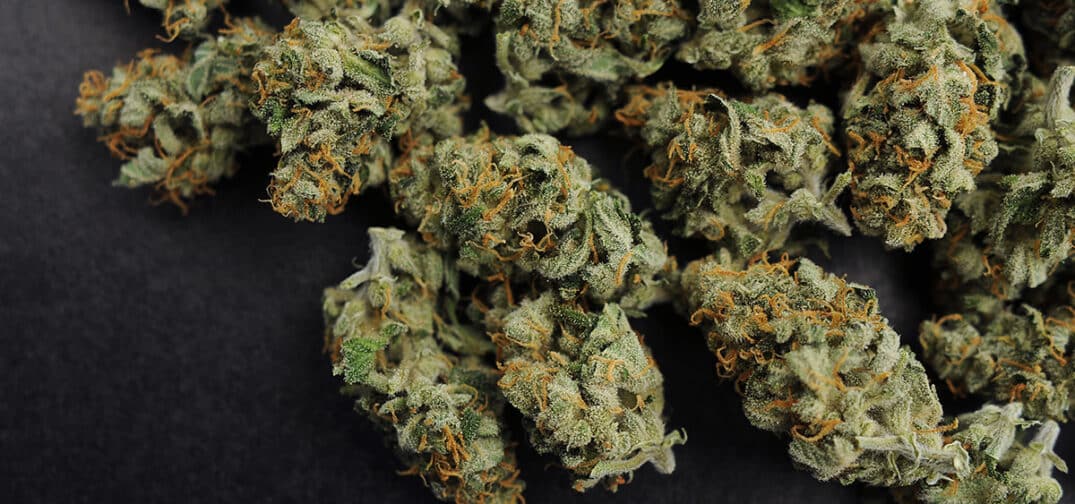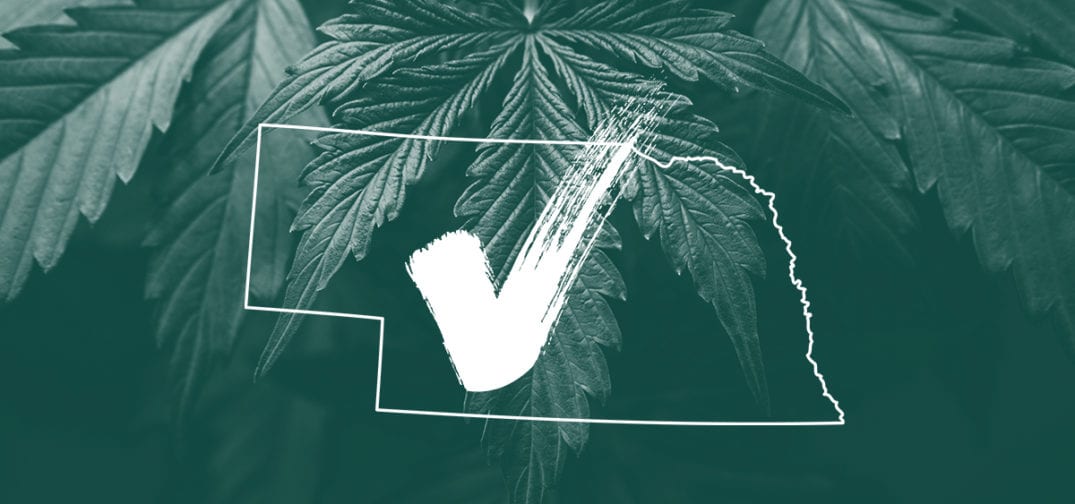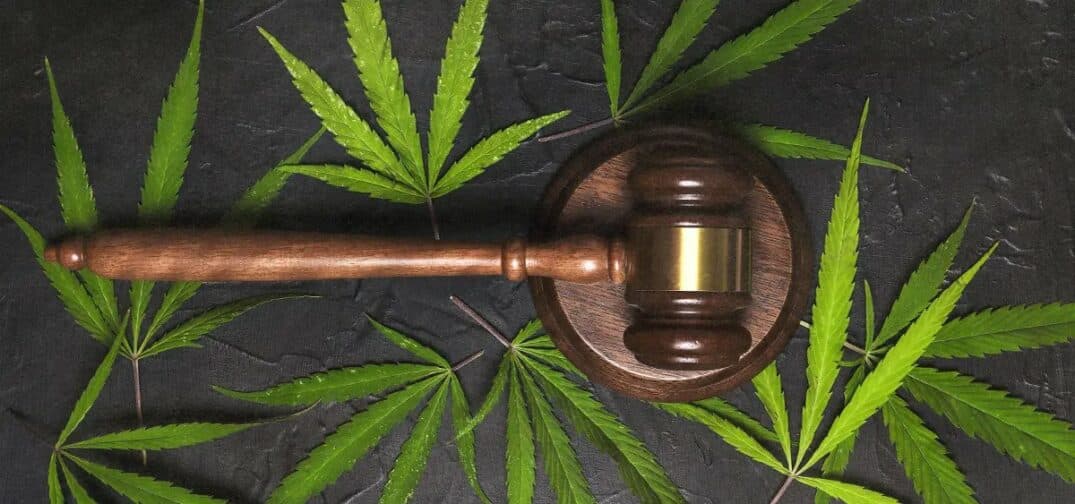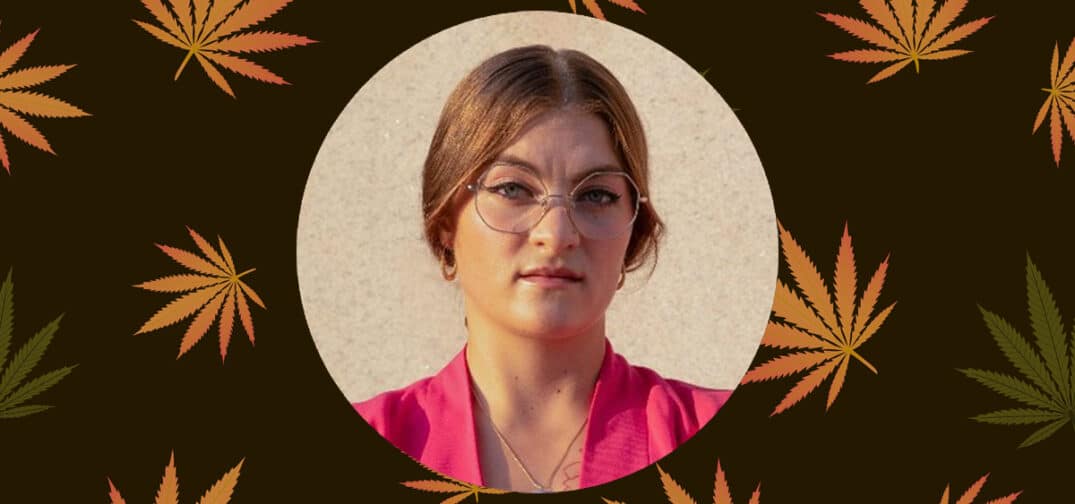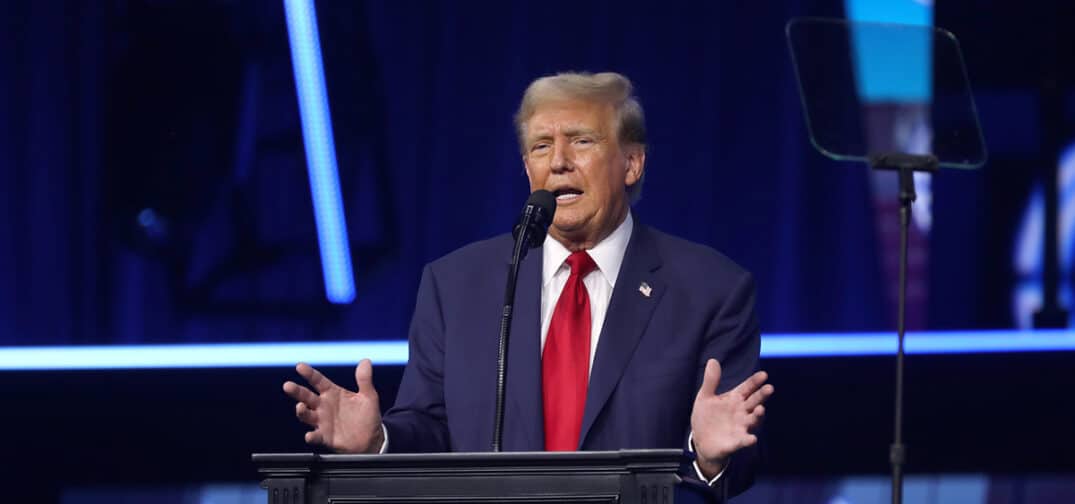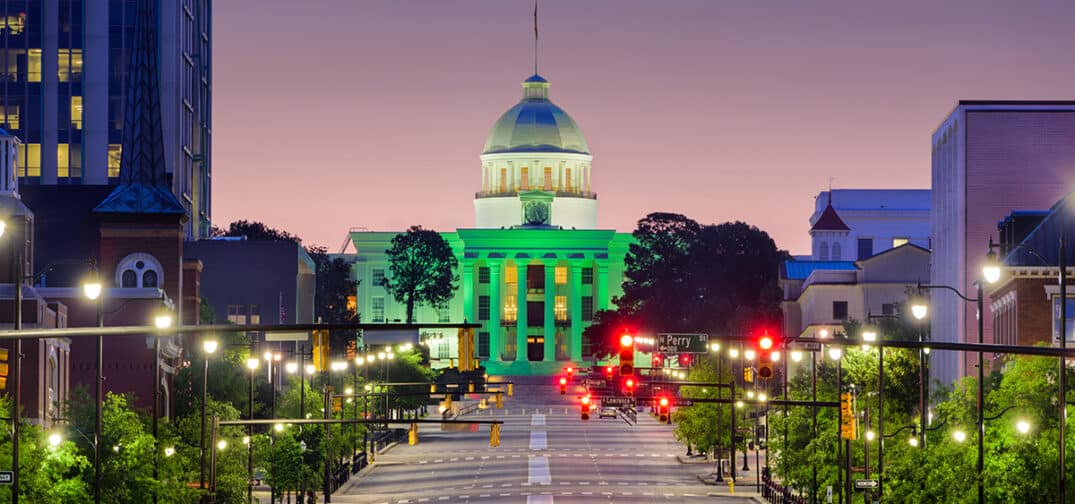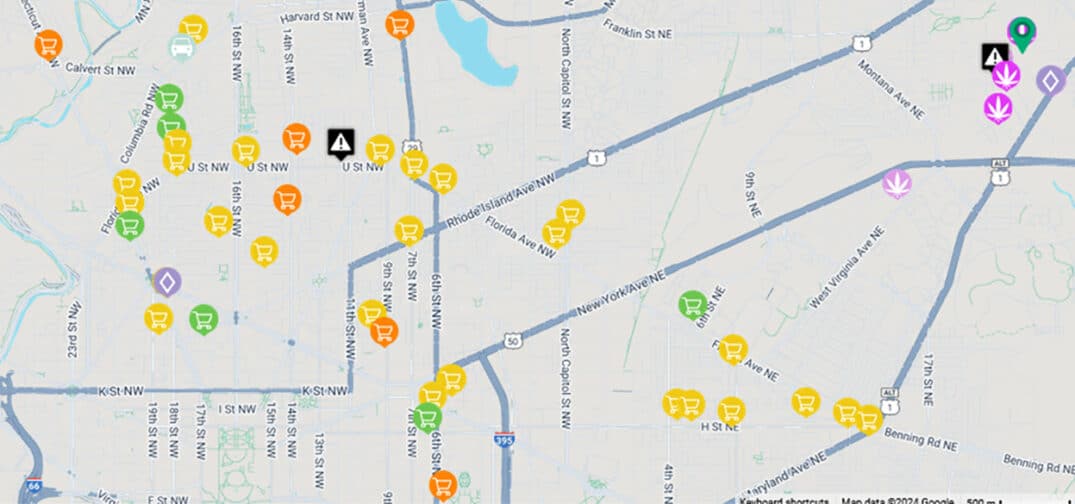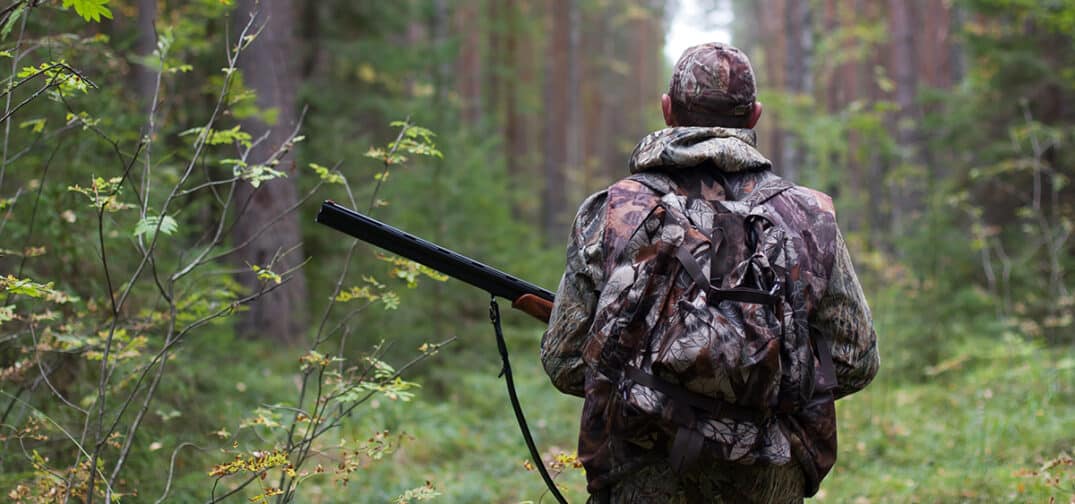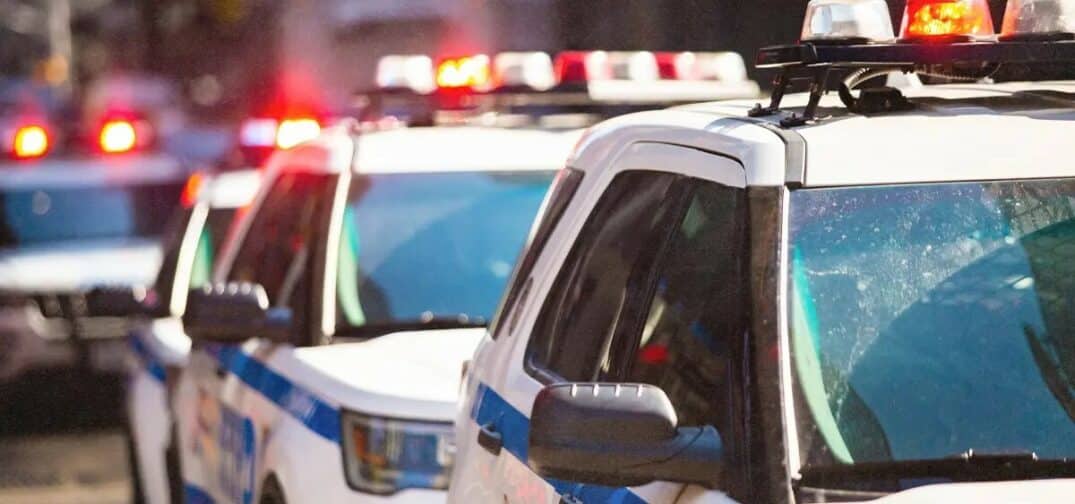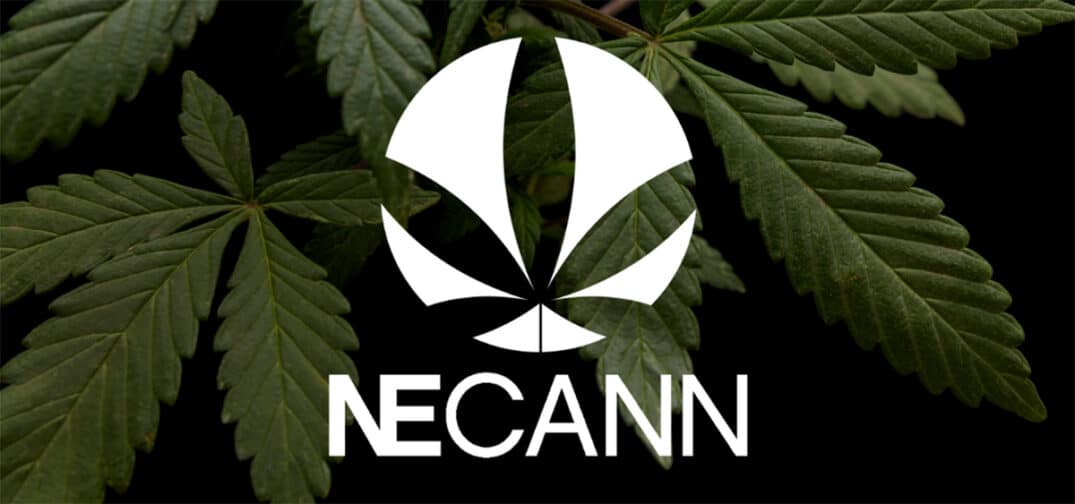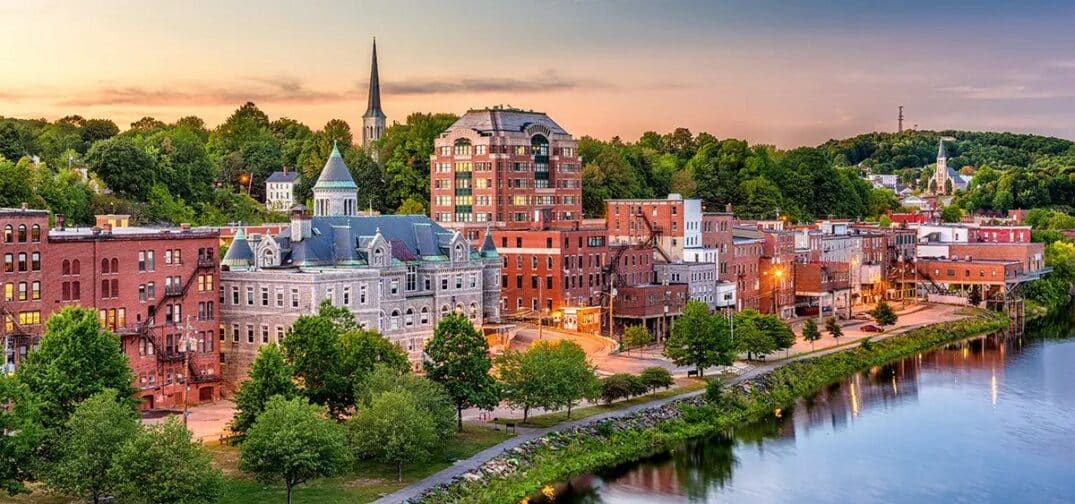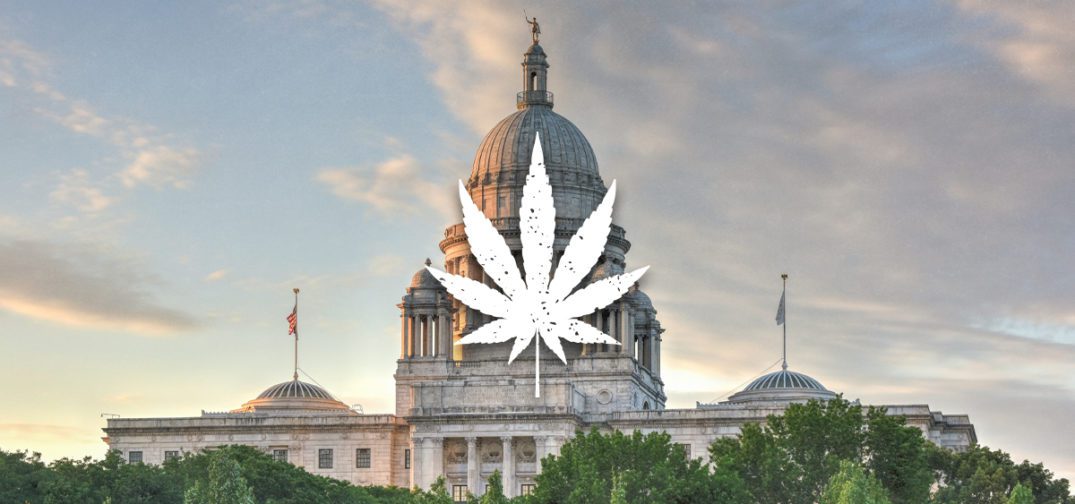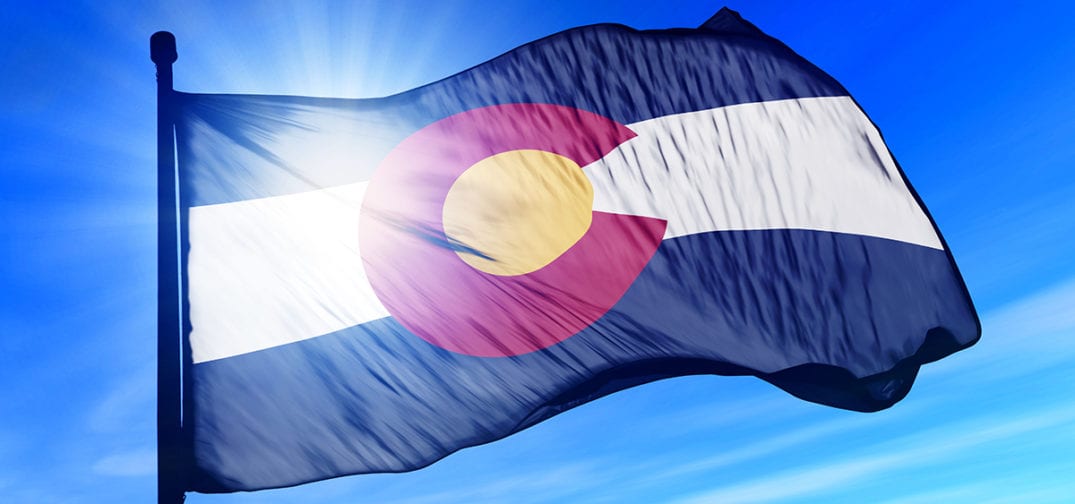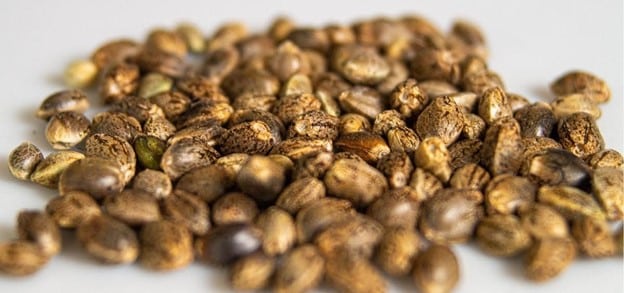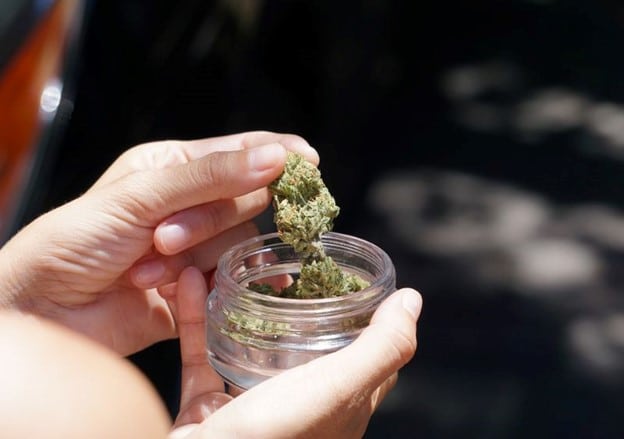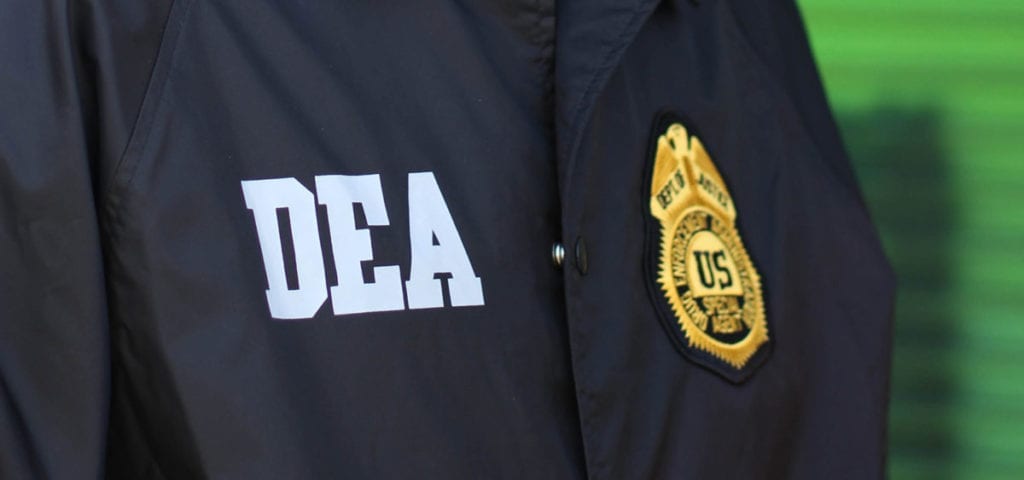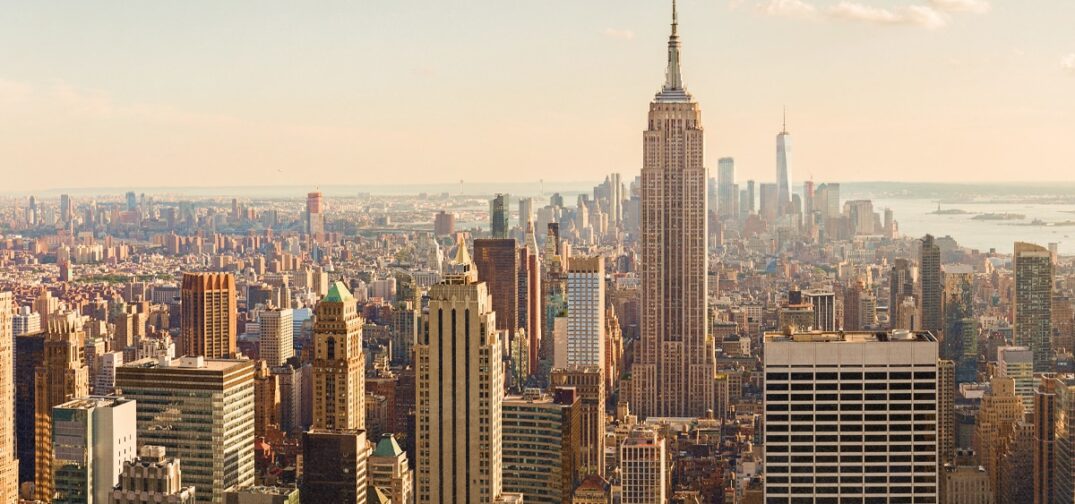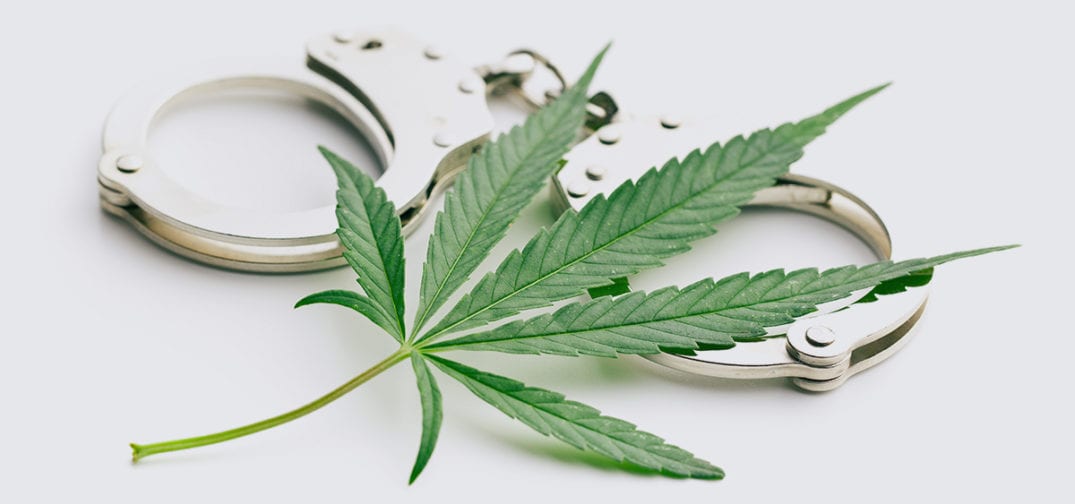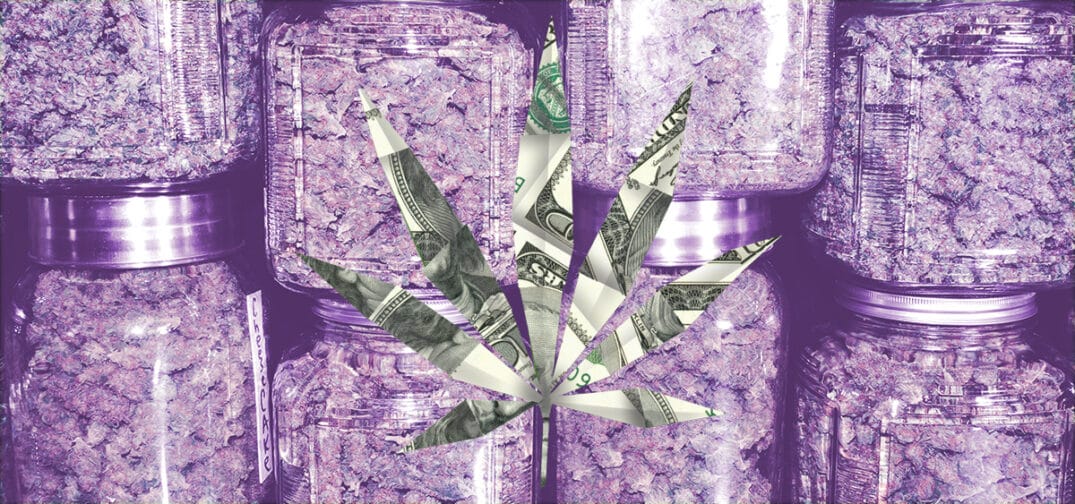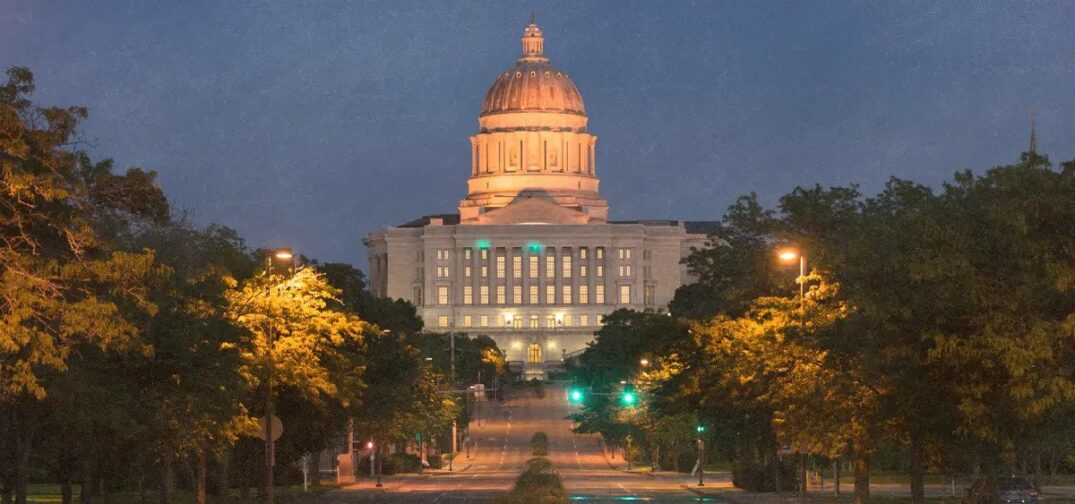In this episode of the Ganjapreneur Podcast, host TG Branfalt is joined by LJ Dawson, the Editor-in-Chief of The Outlaw Report, a Washington, DC-based cannabis news outlet covering the dynamic cannabis landscape in the DC, Maryland, and Virginia (DMV) region. LJ shares her journey from criminal justice reporting to leading an independent cannabis-focused publication, offering unique insights into the intersection of cannabis policy, business, and social justice in one of the most politically charged regions in the country.
LJ discusses the complex challenges of reporting on cannabis in a region where local, state, and federal laws often clash, creating a complicated and ever-evolving market. She also delves into the ongoing efforts to expand DC’s medical cannabis market amidst competition from unlicensed operators, and the broader implications of cannabis enforcement across the DMV. For anyone interested in cannabis policy, journalism, or the intricacies of the DMV cannabis market (regulated and otherwise), this episode provides a nuanced inside look at the current state of the industry.
Find this episode in your favorite podcast app, or listen via the player below! Scroll down for the transcript.
Listen to the episode:
Read the transcript:
Editor’s note: this transcript was auto-generated and may contain errors.
Commercial:
The Ganjapreneur Podcast is made possible by over 500 cannabis industry service providers in Ganjapreneurs Cannabis Business Index. At some point, every plant touching brand experiences the stigma that many industries still have to toward cannabis going strong. Since 2015, our business index is the most comprehensive and frequently visited directory for cannabis friendly services on the internet, saving you the time and hassle of sifting through uninformed and unwelcoming providers with categories for everything from business financing, to extraction equipment to interior designers and public relations. You’ll find every kind of specialist and business service you could ever need. Check out the business index today at ganjapreneur.com/businesses.
TG Branfalt:
Hey there, I’m your host, TG Branfalt. This is the Ganjapreneur.com podcast, where we try to bring you actionable information and normalize cannabis through the stories of entrepreneurs, activists, and industry stakeholders. Today I am delighted to be joined by LJ Dawson. She’s the editor in chief of the Washington DC based cannabis news outlet, The Outlaw Report, which focuses on cannabis news and policy in the DC, Virginia, and Maryland region. How are we doing this morning, LJ?
LJ Dawson:
I’m good, TG. Thanks so much for having me on today.
TG Branfalt:
We have a lot to talk about. There’s a lot of recent happenings in the area that you cover, but before we get to that, tell me about yourself and how you ended up editor at the Outlaw Report.
LJ Dawson:
Well, I always joke I’m the least weed smoking cannabis reporter ever. I actually have a background in criminal justice reporting. I had my own criminal justice news outlet. I’ve freelanced reporting on the justice space and protests actually across the country. And I landed in DC right before January 6th, so it was a fun time to show up. I actually came here first in 2019 and did some political reporting. But yeah, I was here in DC and I reported on cannabis in Montana and Colorado a little bit. I’m originally from Colorado. We legalized weed when I was still in high school, if that gives you a little age. Dated myself a little bit there. But yeah, I reported on cannabis. I was always interested in the industry, and then the Outlaw Report reached out to me while I was still freelancing and trying to survive as all of us journalists are in this economy, which is not kind to anyone, especially not US reporters. And so I ended up at the Outlaw Report almost a year and a half ago, and it’s been a really exciting journey since then.
TG Branfalt:
So if you’re not the cannabis reporter smokes the least amount of cannabis, what drew you to reporting on cannabis? Even as far going back as Colorado and Montana,
LJ Dawson:
Cannabis is a fascinating intersection of alternative communities and thought processes. It’s always a great group of people to talk to. I think everyone who does drugs is always more interesting than people that don’t do drugs, obviously. But in all seriousness, cannabis is a really great intersection of criminal justice, business, the economy, legislation, politics, corruption. I mean, every single beat that you can think of is a microcosm in the cannabis beat, and it’s always something going on, something interesting. And cannabis has been criminalized, obviously for a very long time. It was very interwoven into the war on drugs, which obviously came down harder on black and brown people. And I had a history of reporting on injustice, and so I always wanted to cover cannabis in that way. And then also, I definitely believe that plants are the best way to heal ourselves, even if I don’t imbibe in smoking the good herb all the time, or regularly, as some of my good friends do. I definitely respect and believe in the scientific backing that it is a medicine for a lot of people, whether it’s mental health or actual chronic illnesses, et cetera. And so, yeah, I think it’s a great space to look into stuff to report on. So that’s what drew me to it.
TG Branfalt:
So one of the things obviously being in DC that you’re going to have to sort of focus on is the sort of nitty gritty, the legislation, that sort of policy stuff. So explain the current laws in DC as it relates to cannabis, because they’re different than any place else in the country.
LJ Dawson:
Glad you asked TG. So we are the only district in the whole United States. We are not a state, which means that we do not have state rights. So we are actually not allowed to set up anything, pass any legislation without congressional oversight. So that means that if the city council wants to pass the law, it goes into effect, but then it actually has to get reviewed by Congress. And at any point of a time period, some legislator in Congress can say, yeah, we don’t feel good about this, and they can pass a bill, get enough people, colleagues together to pass a bill to actually stop that legislation. And that is what has unfortunately happened for us. So we were able to legalize medical cannabis. DC legalized medical cannabis in 2013, and then we were immediately afterward stopped by a certain Republican, Andy Harris from Maryland,
TG Branfalt:
The Harris, the notorious Harris Rider,
LJ Dawson:
Harris rider that has something against DC. And that rider has basically prevented DC, which is a very liberal jurisdiction from actually setting up a recreational market. And so shortly after we were squashed in that area, there was an initiative passed called the I-71 Initiative, and that basically allowed decriminalized weed for the most part and allowed some home growing and then also allowed people to gift small amounts of weed to each other. I could give you up to two ounces of weed TG, as long as you weren’t giving me any money, I wasn’t receiving any money. And this was tested in court and actually stood as well. And so what happened is people kind of saw this as a little bit of a loophole, and were like, we aren’t going to have recreational weed. There wasn’t recreational weed in Virginia. There still isn’t. There wasn’t adult use in Maryland that just passed last year.
And so people saw this as a little bit of a loophole that they could start to exploit and started setting up actual stores. It started as popups actually, where people were coming together. They had a lot more weed than two ounces, which is the limit. They might’ve had pounds of weed, but they were gifting it. They were breaking it down, gifting it at popups. They were gifting it in stores, but they were actually setting up brick and mortars. And that all started around 2014 and just continued to blow up. And when it first started, police were raiding these places. I mean, they were not okayed by the city officials at all. They were getting raided, but they would, it’s like a cockroach. You squish it, and another one pops back up. And so these people were setting up stores just trapping out of them under the guise of gifting.
I would come in, they’d say, you have to buy this wristband. It’s $50 and oh, you wanted that Tropicana Cherry eighth, here you go. And so it kind of set up these pseudo dispensaries. And obviously Virginia and Maryland didn’t have access to weed. They certainly didn’t have access to underground strains that were getting pushed in through the underground channels into DC. And so people were going to these gifting stores and they were making tons of money. And it started with local entrepreneurs that were already in the cannabis, underground cannabis industry. And then as the years went on, it kind of expanded more to, as we know, the California markets started crashing. There were these large dispos in Cali that were setting up highways, underground highways to DC, to New York, to all these different markets to backdoor their weed that they had to get rid of.
And so it started getting a little bit more influenced by the big players in the cannabis industry that we think of that are a little less interested in the good of the patient, the good of the client. This isn’t your small Humboldt grower that’s working with a small seller in DC. And so anyways, we had an explosion of stores and in 2022, our medical market was still going. So we had a very small medical market, but people, you can go get weed at a gifting store without registering, just walking in, they have access to all the strains that you’re seeing on Instagram that the rappers are smoking, you’re going to go there even if it’s not tested most likely, rather than going to a medical dispensary that’s going to charge you a lot more. And so we had about half dozen medical dispensaries that were still serving patients, but there was a small sales, they weren’t doing numbers at all.
And so in 2022, DC Council had tried to keep passing recreational weed, and that just kept getting squashed by Congress. And in 2022, they were like, all right, we got to figure something out. So they actually passed an expansion of the medical market that we have in DC and they were able to say, okay, we see that we have all these unlicensed operators and we know that people in DC don’t want this illicit economy going on, so we’re going to try to fold unlicensed operators into the legal market, which has been done nowhere else in the US. No one else in the US has extended a peace offering to people that were operating illegally and said, we want you to come into the legal market.
TG Branfalt:
They ban them more than they would let them in.
LJ Dawson:
Right, exactly. You’re penalized basically. So they passed this expansion to do multiple things. They wanted to expand the market. They wanted to open up more licenses for people to grow, manufacture and to sell weed. And they also wanted to bring these unlicensed operators into the legal market. But again, it’s the legal medical market. It can’t be the recreational market because Congress has kept us from passing something. And so they passed this legislation and we’ve been in a whirlwinds since then, and I can update you on that as we go along. But it’s been just a crazy, crazy period as they’ve tried to transition us into a more expanded pseudo recreational, but still medical market.
TG Branfalt:
And one of the things, correct me if I’m wrong, is they allow self-certification. And I don’t know if that was included in the most recent reforms, but for patients, right?
LJ Dawson:
Absolutely. So that was included in the most recent reforms. One of the things that our government acknowledges in DC is that we have a barrier to people accessing legal cannabis. We can’t have any random person off the street, of course, 18 plus 21 plus access adult use cannabis. And so they said, alright, if we still have to have people certified as medical patients, we’re going to make it as easy as humanly possible. And so now in a manner of a few minutes, and you can actually do it for free until August 1st, if you’re a DC resident, you can actually self-certify yourself as a medical cannabis patient.
TG Branfalt:
And so what does that actually mean? What does this program look like? And so far, has it been effective in bringing people into the more regulated market?
LJ Dawson:
It’s a great question. So we also offer temporary registrations too, which I want to mention because it’s an acknowledgement that we have a lot of tourists in this area and that there were already people coming in from Florida, North Carolina and shopping in our medical market. Of course, there’s many more people going and shopping in our unlicensed market, but this program has helped a little bit, but there’s a key part of this Maryland legalized adult use last summer, we’re almost on a year of Maryland having adult use cannabis for everyone that’s 21 and over. And so DC had really bad timing with this, right? We started trying to expand our medical market when Maryland just ripped the rug out from under us. So it’s been somewhat successful TG, but we are seeing a slight rise in patients, but we don’t have that many yet, or we have continued to not have that many, and we haven’t seen an increase that you would expect maybe if this was really a great program.
And at the end of the day, it comes down to the fact that people don’t want to register. We are in a place where a bunch of people are federal workers. Cannabis is still stigmatized by many people. Of course, there’s this idea that your medical records won’t be released, but who knows if you’re applying for the CIA, I’m not, don’t worry. But if you’re applying for the CIA, they’ll probably find your records. So there’s this idea that people don’t want to register. I’ve been hearing from the legal medical dispensaries that are in the city right now that 30 to 70% of people are walking out every single day because they don’t want to register. And this is something that’s so easy, it can be free. And a lot of the dispensaries know this is a problem. So they’re actually helping people register right there. So you could walk in and be registered in minutes and people are still saying, no, no, no, I don’t want to do that. And they’re going next door to the unlicensed operator.
TG Branfalt:
That’s really, really interesting that people would choose. And again, I mean I think that that speaks to the region that you’re in where there are so many federal workers and government workers, and there are, we know some sort of slippery slopes when it comes to cannabis use and even applying to the federal government. I mean, you can be found lying on a federal form and things of that nature. And so tell me about some of the challenges covering cannabis policy in DC, Maryland, and Virginia, and how do you tow the line between local and national? Because so much of what comes out of DC is national news.
LJ Dawson:
I try not to get caught up in the hubbub on the capitol. There is constantly a cannabis news outlet, and I love all of our colleagues dearly. I appreciate everyone’s work, but there’s constantly people chasing after every single vote change, every single breadth of rescheduling. And the fact is that all of that stuff, whether it’s rescheduling, decriminalization, any of the legislation that’s working its way through Congress is very unlikely to pass, in my opinion, one. And then two is years away from actually impacting the person that is a medical patient or just a normal person trying to go smoke some weed and get a regulated clean product. And so I actually ignore a lot of it. And I’ve been on the hill, I’ve reported on the hill. I’ve great friends that are on the hill every single day. But I think that there’s an over diversion of resources spent reporting on the capitol because it is overcovered, a lot of the stuff that comes out of there is actually not newsworthy.
It’s only newsworthy because we’re giving it saying it’s newsworthy. And there’s so many stories in Virginia, in DC, in Maryland that need coverage, that is actual policy that’s currently in place impacting business owners, people of color patients, everyone that is most disenfranchised by big business, by politics, they’re actually getting impacted right now. So I always make sure that in any of the coverage we’re doing, I am prioritizing those people. And then I’m also prioritizing the small business owner that is either in the hemp industry or the cannabis industry that is trying to have an impact or start a business in this really crazy market.
TG Branfalt:
And I do think, to your point, that it speaks to a broader issue of journalism in general, which is a whole other conversation we could talk about where everything has turned into sort of horse race coverage and game coverage and is covered more like sports than policy. And not to say that I’m not guilty of it myself in terms of poll stories, it’s just the score. It’s just the score. Switching gears a little bit. You had said that you had covered sort of justice topics primarily for a while or had a keen eye on that for a while. How important are the pardons for Maryland Governor Wes Moore, and how important are the optics of a governor? Pardoning a record of people. I mean, this is the broadest pardoning by a governor so far.
LJ Dawson:
I’m really glad you asked this question, TG, and I think you used a key word, which is optics. Public opinion and public political energy is very crucial to the efforts to decriminalize cannabis or to get any movement on Capitol Hill. I do not want to undermine Governor Wes’ action in this case. I mean, it was almost 200,000 people that are being affected by this effort that he’s done. However, it’s not decriminalizing cannabis and these people are pardoned. But I was looking at the application to go through and get your pardon and it’s 27 pages long and every part of that needs lawyers on it and everything. But you’re talking about people that have been screwed over by the system over and over again. The system has never been their friend. And the governor does this and gets a lot of PR attention on the national scene.
He’s saying he hopes other governors join and do this. But I always think there’s a disconnect between the top of the government and actual impact on people. And so it’s great that this door is open for people to pursue expungement, right? Because if you get a pardon, then you have to pursue your expungement and you the cleaning of your record. But this does not fix anything. This doesn’t fix the decades potentially that someone has been refused jobs spent in prisons because of cannabis charges that they faced. I also want to highlight that the difference between nonviolent and violent charges. There’s a really big push on all criminal justice reforms to do nonviolent, nonviolent, nonviolent charges. And of course that’s easier to stomach for everybody. But the truth is, is that if someone was forced to go into the drug game, we’re not talking about people that were pulled over with an eighth of weed or a pipe, but we’re talking about people that had to participate maybe because of the place they grew up in, the economic opportunities they were afforded.
They had to participate in the drug industry. And if they had to, that’s very rarely going to be a nonviolent charge. You’re usually going to have to have a gun on you. You’re usually going to be caught up in the other parts of being in the drug game. And so there’s people who are impacted by the war on drugs that are not going to be nonviolent offenders. And so those people sometimes get left behind. And then there’s also still tons of people, thousands of people federally incarcerated for nonviolent cannabis charges, including Jonathan Wall, who was recently sent to federal prison in Maryland actually on trafficking charges just a few years ago. And so there’s still people currently incarcerated in Maryland, federally. Obviously the governor can’t impact that. He only has a jurisdiction over his state. But I think it’s important that we stay realistic when these things happen and don’t get caught up in any PR or optics that is pushed on us.
TG Branfalt:
I mean, I think the coverage that came out after the fact was similar to when Biden issued those pardons, which really had an effect on what 200 people. I mean, again, I’m not trying to downplay it much like you weren’t either, but the optics were kind of more important than the actual policy that it implemented and the reforms that it implemented.
LJ Dawson:
Yeah, and tj, I feel like a lot of the advocates and people that have been impacted by cannabis criminalization, they’re taught to kind of be grateful for breadcrumbs, right? We’re taught to just be like, oh my gosh, thank you so much for doing this. When it’s like, Hey, this is still not enough and we should be okay being able to say thank you and you need to do more and we need more.
TG Branfalt:
So what are the challenges for the region’s cannabis policy when on one hand you have more progressive, and then on the other hand, you have Republican governor Glenn Youngkin in Virginia who has done everything in his power and along with the legislature to block the implementation of cannabis adult use cannabis in Virginia as approved by the previous democratically led legislature?
LJ Dawson:
Yeah, I’m really glad you brought that up. Virginia is a very interesting case. It was literally legalized to have adult use in a democratic controlled legislature. And then Youngkin came in who’s a Republican and has blocked the market. The law has already passed, but he is not allowed the actual implementation of a legal adult use market in Virginia. And they have some of the highest medical costs actually. We see people in our patient counts in DC, Virginia patients are the second highest register people that come over and shop in our medical cannabis market. And also, I’m sure they’re shopping in the illicit stores a lot in DC. And so this has a real impact on Virginians. Not everyone in Virginia is close to DC. They’re not close to Maryland. And so we are kind of at a loss of hope for Virginia until Youngkin leaves office.
That means that we could be looking at 2027, 2028 before an actual adult use market is set up. So there’s also other things going on with hemp in Virginia. So I’m kind of reporting on two opposite spectrums, right? Because there’s Virginia where it’s still the dark ages. There’s Maryland who just legalized adult use last year. The market opened up last year again, but being critical, keeping them in check. The only operators that have been able to sell weed to in the adult market are previously licensed medical dispensaries. And so we have a lot of MSOs, a lot of previously established dispensaries, not small guys, not social equity candidates necessarily making millions of dollars in Maryland and the adult use market, but Maryland also has a lot of cool programs going on to try to engender and cause a growth of social equity or people that were the small guy in the cannabis industry there.
And then we have DC, which is federally controlled and kind of in the middle of the road. I just try to keep up to date with everything. Obviously we have a lot of different things going on, but each state has its own power imbalances. It has its own players, and we just try to make sure that we’re paying attention to all of the major stakeholders so we can accurately report and get the information that each of those states need. The last thing I’ll say is that the markets impact each other too. So Virginia, DC and Maryland are very close together, and the big city centers are very close together. So even if Maryland’s a whole state, Virginia is a whole state DC in the middle, we have a lot of big cities that are all near DC. Baltimore is not too far from us. And so if there’s a market change in Maryland that could push patients into DC if there’s the market change in Virginia that could push patients into DC or out of DC and vice versa. So we try to make sure that people know how the other state next to them or district is impacting their market.
TG Branfalt:
Are you seeing in the region, are you still seeing a lot of, how do I want to put this cannabis enforcement in Virginia? Meanwhile, the surrounding states in the district have legalized, so are we still seeing a lot of harms in Virginia despite the neighborhood being broadly kind of adult use?
LJ Dawson:
Virginia is still pulling people over with pounds of cannabis in their car, and Maryland is too, and DC is actually kind of the only place which I can get into after the only place that is actually not focused so much on cannabis enforcement. But Virginia is very much still focused on cannabis enforcement. They’re very much still a state that is doing traditional policing. They have rural areas there. Manassas, Virginia is tiny. There’s a bunch of rural areas in Virginia that are– it’s a more conservative-run state in all ways down to the police departments. And so you have people getting pulled over in Virginia that are getting busted with cannabis, but that’s still happening in Maryland too. Just because you have an adult use market does not mean that illicit or underground cannabis transportation and selling is not getting enforced as well. And so in Virginia, we actually have a little bit of a replica of dc They’re doing adult sharing, so their shops actually getting sped up that are adult sharing cannabis, right?
No, I 71 initiative in Virginia. It’s they’re trying to create a loophole that doesn’t exist, and those shops have been getting raided. Those shops have been getting shut down and people are forcing or facing jail time and charges for that. And in Maryland as well, people I see every other week someone getting arrested in a news article about someone getting arrested for a pound of cannabis or vapes, et cetera. So there’s still enforcement going on. I would not drive through Virginia if I was anyone with a pound of cannabis. That would be at least make sure your taillights are all working. Do not get pulled over in Virginia. They’re not going to be kind to you.
TG Branfalt:
Have any portions of the law taken effect such as allowing people to possess an ounce personal use, or is that still blocked?
LJ Dawson:
Yes. So you can possess, that’s why I said a pounds. Okay, okay. Yeah, you can possess cannabis in Virginia, right? But yeah, you got to be careful about the amount that you have.
TG Branfalt:
So we talked about, you had mentioned enforcement in Virginia and Maryland. What about enforcement in DC?
LJ Dawson:
So we’ve seen quite the seed change in dc As I had mentioned, there was a proliferation of unlicensed shops towards the end of 2016, probably till 2020. They were getting rated almost weekly, monthly. The cops were allegedly taking the weed and taking the money, and then they were arresting people and then letting them go and letting people just reopen somewhere else. However, in 2022 when they passed the medical cannabis expansion, part of that was actually a safe harbor that starting last year in January, gave unlicensed shops a year to do what they had to do because they were opening up applications and technically saying the doors open, unlicensed applicants or unlicensed operators can apply to become a legal medical dispensary in dc. And this was really unique. In DC we had multiple application periods for different types of businesses, but there was actually specifically an unlicensed operator retail period at the beginning before social equity and before standard. And they gave unlicensed operators 90 days to apply to become part of the legal market, and they actually had to prove that they were operating illegally, paying taxes as a gifting business to qualify for these licenses. It’s quite wild. There were definitely a lot of people who were like, there’s no way I am going to submit any government document saying that I was gifting
TG Branfalt:
Breaking the law,
LJ Dawson:
Right? I was gifting weed, and it definitely wasn’t two ounces. It was millions of dollars. And I was filing taxes saying that off of T-shirts, I made $10 million last year, right? So this was very unique, and they said they weren’t going to enforce, and that safe harbor period ended in January. However, we have not had more than four dispensaries, new dispensaries open, and we’ve had no new cultivation centers and no new manufacturers open. So the council gave them another until September. So another, I think it was four months if they applied to keep doing what they were doing, acknowledging that there’s a lack of supply in DC and that there were patients that weren’t going to be able to be served. So if you’re an unlicensed operator who applied during the licensing period and said you were gifting and they approved you, and you’re in the process of turning into a legal medical dispensary for the location you applied for, you can keep gifting out of it until September of this year.
However, in March, they started enforcement and that enforcement was against shops mostly that had not applied shops that were gifting, which are now most shops don’t even gift. They’re open dispensaries at this point elicit open dispensaries much like you have in New York. And they started enforcement. And the enforcement started very delicately with just letters that said, you’re warned this is what you’re doing. It came from our cannabis regulatory agency. It did not come from the cops. And there have only been a few raids, and most of those raids seem to be because of mushrooms, mushroom products being sold alongside cannabis. Well,
TG Branfalt:
Isn’t that another sort of layer to this? Because DC voters approved psychedelic medication therapies, I should say in 2016.
LJ Dawson:
So we have another initiative called I 81 that’s often mistaken to be just a replica of the I 71 Cannabis Initiative for mushrooms. And what it did actually was decriminalize a possession of a certain amount, and it also deprioritized enforcement of psychedelics. It did not do any gifting legislation or any gifting initiatives such as I 71. So it’s still very illegal to even share mushrooms technically even, and especially to sell them in dc They’re still obviously a federally controlled schedule one substance.
So after they started enforcing in March, they laid off a little bit. They started delivering warnings, and those warnings have not really stopped any unlicensed shops from being open. They got the warnings and most of them stayed open or open the next day, kind of this idea that we’re going to go until the wheels fall off. We’re going to make as much money as we can until they literally kick us out. And this actually started impacting the forecast of the new medical market. There’s over 50 stores that should be opening in DC that’s over a 900% increase. We’ve only had a half dozen stores that were medically licensed retail stores, and now there’s over 50 that should be getting licensed and open in the next three to four months. And the medical market’s not doing well because there’s still an unlicensed market that’s thriving in dc.
And so the medical community, a lot of them are pushing the DC Council to do more, to be able to kick these unlicensed operators out, because every time you put a medical dispensary next to an unlicensed operator, that unlicensed operators always going to win. There’s less barriers to shop. It’s better product in a lot of people’s opinions, even though if it’s unregulated and it’s often cheaper. So we are waiting to see what happens, but they just passed emergency legislation to start being able to padlock unlicensed operators to do the same thing New York did. To seriously try to clear these dispensaries that are unlicensed out of DC so the medical market can actually have a chance.
TG Branfalt:
It’ll be interesting to see how well that works because I live in New York, not the city, obviously very upstate, but there are still quite a bit of illegal dispensaries,
LJ Dawson:
Absolutely TG. I’ve literally seen Instagram ads where unlicensed operators, which Instagram ads is a whole nother conversation, but unlicensed operators have literally been saying, DC’s closing I-71 stores. Don’t worry. We still will have a delivery sign up. Now we’re offering you a percentage off sign up, get in the door, get your number in. And I mean, DC, there’s so much going on in the city. The cops have so many other problems. They do not want to get dragged into cannabis enforcement unless there’s a shootout going on. It’s a big crime like making money to them. It would’ve been maybe some years ago a priority, but right now it’s not. And they do not want to get caught up in the legislative mumbo jumbo that has been caused by the federal oversight in DC.
TG Branfalt:
So I want to you a question that I find myself asking myself and also asking my colleagues and people that I’ve worked with, and as you said at the top, you’re a believer in sort of plant medicine and things of that nature. How do you as editor in chief remain objective? Because most of us covering cannabis have a bit of bias towards cannabis. I’m a lowly podcast host and staff writer, and I believe that that gives me a little bit more leeway, if you will. But as editor in chief, I think that there’s a different responsibility there. So can you talk about that a little bit?
LJ Dawson:
Absolutely. We’re already assumed to be biased, obviously, because we’re called the Outlaw report. We report on cannabis. And there’s an idea in the journalism world that if you’re even reporting on cannabis and a little alternative independent publication, that you’re obviously going to be like smoke weed, everybody. But that is not how we are. I think that it’s very important that we’re still a journalistic news outlet, and our job is to hold everyone accountable. That does not just mean the government. That doesn’t just mean the businesses. That means people too. So we know that cannabis is evolving. We know that cannabis is getting stronger. We know that there are new products coming out. We know that there’s little research on those products. We’re not talking about grandpa’s cannabis getting grown in the backyard anymore, and we need to remind everyone that. And so it is our responsibility to talk about studies.
It’s our responsibility to talk about testing, to report on the cannabis industry as if it was the food industry, as if it was any big industry that people are consuming. I mean, cannabis consumption is now acknowledged that it’s incredibly high. This is something that’s happening. People smoke weed. That’s a PSA for all of us. We always have, right? People smoke weed. People are still smoking weed now, they’re eating weed. I mean, they’re doing everything. And so it’s our responsibility to stay non-biased and focus on both the negatives and the positives of the cannabis industry and hold everyone accountable, whether that be at the top or the bottom.
TG Branfalt:
So one of the interesting things that Outlaw Report has done is launched a map of the progress and locations of DC cannabis licenses. What went behind that decision and how important is that map to stakeholder engagement?
LJ Dawson:
TG, I’m really glad you asked about this. This was a map that organically came up because I was trying to keep track of all of our applications in this last period. And so in our cannabis expansion of our medical market, just in DC, we have had hundreds of businesses apply as manufacturers, cultivators or dispensaries, retail locations. And this map is incredibly important. DC is a small place. Real estate is a high commodity. It’s rare. It’s even rarer to find real estate that you can rent or buy as a cannabis business. And so our map is a really great visual breakdown tracking where all of these cannabis businesses are in the process of getting open. Just because someone gets a license, someone gets their application in, that can mean they’re still months away. And so our license map is a way for people–it’s color coded–
It’s a way for people to keep track either of what’s happening in their own neighborhood, what’s happening in the neighborhood, that they want to open a business where they can actually go buy legal weed that will soon be tested in a lab in DC, we don’t have testing quite yet, and it’s a way to just keep track of what’s going on. It’s not the only offer or perk that we offer to our subscribers. We’re also offering real-time legislative updates, and we hope to expand that to the Maryland market within the next four months. This is our goal to become a sustainable news outlet. All of our articles are free. We will keep them free, but some of this more labor intensive data stakeholder information that we take a lot of time out of our reporting to create, we are asking people to support us and subscribe to get access to that.
TG Branfalt:
Well, hopefully the next time that we chat, we can talk more about how you build the actual subscription model and that sort of thing. But in the meantime, where can people find out more about The Outlaw Report? Where can they find this map and maybe find out more about you?
LJ Dawson”
So come to OutlawReport.com to see all of the most recent news stories we’ve been writing, covering the DMV area, and subscribe to get access to our map. You can find me at @LJreports on Twitter and Instagram, and my email is also on our website. If anyone has any tips, tidbits, or hot takes they want to share.
TG Branfalt:
That is LJ Dawson. She’s the editor in chief of the Washington DC based cannabis News outlet, the Outlaw Report, which focuses on cannabis news and policy in the dc, Virginia, and Maryland region. Thank you so much for being on the podcast today, lj. It’s been fun.
LJ Dawson:
Thanks, TG, and hopefully you will have us back.
TG Branfalt:
Definitely. There’s a lot more ground to cover here. You can find more episodes of the entrepreneur.com podcast and the podcast section of Ganjapreneur.com and wherever you get your podcasts. On the Ganjapreneur.com website, you’ll find the latest cannabis news and cannabis jobs updated daily, along with transcripts of this podcast. You can also download the Ganjapreneur.com app and iTunes and Google Play. This episode was engineered by Wayward Sound Studio. I’ve been your host, TG Branfalt.
